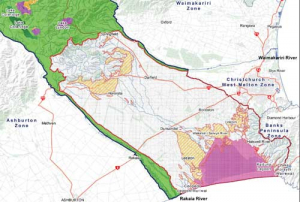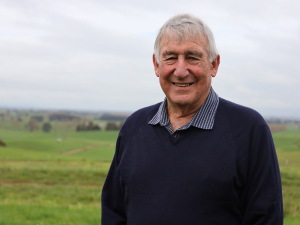Farmers in Environment Canterbury’s Selwyn-Te Waihora zone are being urged to get a move on with their farming consents.
An estimated 900 farmers in the catchment, which runs from the foothills to the coastal region around Lake Ellesmere (Waihora) will by this July need a land use consent to farm.
The requirement is laid out in the Selwyn Te Waihora section (Plan Change 1) of the Canterbury Land & Water Regional Plan, which specified new nutrient management limits and became operative in 2016.
Farmers in the zone must have a land use consent if they farm more than 10ha, and either:
Have nitrogen losses of more than 15kg/ha/year
Are located in designated phosphorus sediment risk areas (primarily heavier soils in two broad swathes, near the foothills and in the Lincoln and Leeston area)
Or are located in designated cultural landscape/values management areas (primarily around the lake).
Zone committee facilitator Ian Whitehouse says ECan sent out about 2000 letters in February to rural property owners warning them they may need a consent.
At the same time, ECan also announced a new nitrogen assessment tool, NCheck, approved for use only in the Selwyn Te Waihora catchment.
Whitehouse says NCheck is an effective and valuable tool enabling people to estimate whether their nitrogen losses are more or less than 15kg/ha/year.
ECan regards Selwyn Te Waihora as one of the more challenging catchments in the country, with low flows in the Selwyn River and the lake at the bottom of the catchment acting as a sink for nutrient runoff.
Whitehouse says that as a wide shallow lake in which sediment is easily stirred up in windy conditions, there is always a lot of nutrients. “The lake grows algae very well.”
However, the total package is not just about what is required of farmers, but also other management issues, i.e. the lake margins, wetlands and the lake level.
Whitehouse says the basis for the consent application would be a farm environment plan (FEP), which various industry bodies will help farmers to draw up.
Speaking at the recent Lincoln University Dairy Farm focus day, Ravensdown environmental principal consultant Arron Hutton said the consenting process is very complex because a number of different rules are in play but the nitrogen limit of 15kg/ha/year will impact many.
“In most cases if you know you’re an intensive farmer, a dairy farmer, it’s almost a given that you are going to have to take some sort of action.”
Hutton said farmers first need to realise what zone they are in by consulting ECan’s www.canterburywater.farm website, then decide whether they think they need to take action.
“Phosphorus is an issue for the guys in Selwyn primarily on the heavier soils, and nitrogen is the issue for the guys in Selwyn primarily on the lighter soils, both of which potentially can accumulate in the environment to negative effect,” says Hutton.
The best approach for most farmers will be to contact a consultant. Although many will not have time to get their consent in place by July, ECan is allowing Ravensdown Environmental to run a waiting list.
“It is expected of farmers that they will already have had a FEP in place before they go on the waiting list. And they are expected to have started to undertake the good management practices described in the FEP regardless of whether they are having to get a consent or not,” said Hutton.
“First get in touch with someone who understands your farm system and knows what the rules are, and they will be able to advise you what your best course is,” he says.
“But not getting on a waiting list will not be an excuse at ECan’s end.”


















